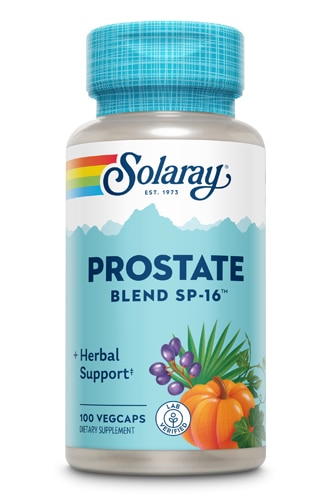Men are notoriously reluctant to see the doctor, as many exasperated wives and girlfriends will testify. But that hesitancy can be fatal if a man has a hidden health condition.
Ken Malik knows the importance of getting checkups. After turning 50, Malik got an unwanted mid-life birthday present: A prostate cancer diagnosis.
Malik is now 72, and his cancer is under control. In fact, he credits the disease with forcing him into making crucial lifestyle changes.
“Getting diagnosed with early-stage prostate cancer was one of the best things that ever happened to me,” he says.
Today, he wants more men to take proactive steps to improve their prostate health.
3 steps to a healthier prostate
Malik is founder of the Prostate Awareness Foundation, which offers information, education and support to men with prostate conditions and concerns.
His foundation urges a three-pronged approach to help men manage prostate conditions -- or to prevent such problems before they begin. The three changes are:
Eating a more healthful diet. Malik urges men to eat a nondairy, “vegan-leaning” diet. Studies have found a link between a diet rich in dairy products – such as cheese, milk and yogurt – and an increased risk of prostate cancer, according to the Mayo Clinic.
Studies also have found that men who eat diets high in animal fats – including meats, lard and butter -- have a higher risk of prostate cancer. The Mayo Clinic suggests consuming plant-based fats instead, and recommends:
Engaging in vigorous exercise. Additional research indicates that men who exercise regularly have a lower risk of prostate cancer, the Mayo Clinic reports. It recommends that most men engage in 30 minutes of exercise on most days of the week.
The Prostate Awareness Foundation also urges exercise. “The more aggressive, the better,” Malik says. Remember to consult your physician before undertaking any exercise program.
Managing stress better. Malik says he practices meditation and exercises regularly to reduce stress and boost his immune system.
Monitoring prostate health
After Malik was diagnosed with prostate cancer, he did not have surgery or radiation, because he did not want to risk side effects such as incontinence and sexual dysfunction.
Instead, he has used what he calls an “aggressive watchful waiting” technique – also known as “surveillance” or “chronic disease management” -- to monitor prostate health. He says this approach and his lifestyle changes have helped keep his cancer under control.
“It’s never progressed, and I’ve never had any treatment,” he says.
To monitor his condition, Malik regularly schedules a prostate-specific antigen test, more commonly known as a PSA. This blood test measures your PSA level and can help detect prostate cancer early.
Since his diagnosis, his PSA has been as high as 22.6 and as low as 2.1. He also undergoes ultrasound monitoring to make sure his disease remains at bay.
Malik notes that this approach might not be right for everybody. “Some guys really do need treatment,” he says.
But he urges men with prostate cancer to consider simply monitoring their disease, given the serious side effects that often accompany surgery or radiation.
And science seems to back Malik’s belief. A 2016 study published in the New England Journal of Medicine found that survival rates are nearly identical for prostate cancer patients regardless of whether they choose surgery, radiation or active surveillance.
Malik also urges men to get over their reluctance to see the doctor. Although critics have raised questions about the PSA test’s accuracy, Malik believes men should have this testing done so they establish a baseline that can be monitored over time.
“That’s a big mistake guys make,” he says. “They don’t get the test to establish a benchmark.”
Finally, Malik reminds men that prostate cancer rarely kills people. In fact, patients have a 15-year relative survival rate of 96 percent, according to the American Cancer Society.
He also stresses that using his foundation’s regimen -- eating better, exercising more and reducing stress -- offers benefits far beyond prostate health.
“If you adopt those strategies, you’d have less likelihood of diabetes, less likelihood of obesity, less chance of a heart condition,” he says. “And they are the things that kill people.




